We at KENPRO offer Fund Raising and Proposal Writing and training solutions to the members of Non-governmental Organizations, Community Based Organizations, Faith Based Organizations, Self-help groups, youth groups, women groups among others.
Fund Raising
Fund raising is a process of mobilising financial resources required to achieve organisational goals and objectives
The common sources of funds include: Governments, Endowments, Donors, Foundations and NGOs, Volunteers, Investments, Corporate sectors, Community contributions and inheritances.
There are various methods used in fund raising. These include Proposal writing, Special events, Endowments, Partnerships, Twinning arrangements, Volunteers, Subscriptions and pledges and Letters.
A good fundraiser should be: Knowledgeable about fund raising resources, A good communicator, A person with good interpersonal skills, A person with sound analytical skills and should be persuasive.
Proposal Writing
The following constitute an outline of a general proposal format. There are however particular proposal formats which depend upon individual donor requirements. We at KENPRO adhere to general and particular funding proposal requirements.
1. Proposal Contact Details
- The Project Title
- The address and location of the project
- The organization or people responsible for the project
- A succinct and clear statement of the overall purpose of the project
2. Background
This should say:
- Why the project is necessary: provide information on social, cultural, health,
- economic, political, geographical and other factors contributing to the issues/needs
- What needs the project will try to address
- How the needs have been identified – referring, as relevant, to the feasibility study, information and data collected
- Who the project beneficiaries are
- What other organisations will be involved in the project and whether there are other similar projects
3. Project Description, Aims and Objectives
- Describe how the project will be implemented
- It is necessary to be clear about the difference between the overall aims of the project; the specific objectives and the activities that you will carry out
- Aims or goals are broad or long term and could be, for example…’to improve the health of all children in the district.’
Objectives are more specific and measurable, with timescales for particular aspects of the work and activities that will lead to the achievement of the overall goal. One-way of focusing on the essential characteristics of any objective is to think SMART (Specific Measurable accurate, Realistic and Time-bound.
4. Inputs, Activities and Outputs
Describe the resources (inputs) required in order to carry out the project activities and define the timescale. Activities and outputs should not be confused with the objectives of the project. Activities are what will take place in order to achieve the objectives and could include workshops, clinic sessions, home visits. These activities produce the project outputs such as numbers of people trained, new clinic users in the programme. In a feeding programme for example the number of children who have been fed is an output; the objective of the programme would be the improved nutritional status of the beneficiaries.
5. Assumptions and Constraints
Illustrate the conditions which are necessary to achieve the objectives. There may also be factors which will affect the successful achievement of the project objectives. Both assumptions and constraints may be external and out of your control. Example: an assumption affecting a child health programme is that parents participate in relevant activities. A constraint is that funds remain available for the programmes.
6. Monitoring and Evaluation
Provide details of the indicators or criteria that you will use to monitor progress towards achieving objectives. Indicators can be both qualitative (e.g. measuring satisfaction with service) or quantitative (numbers of people using a service). Monitoring means collecting data and information in an ongoing fashion; analysing the information and using it to implement changes and improve what the project is doing. Monitoring will provide the information that you need to evaluate the project. Evaluation is looking back to assess performance against objectives. You may need to describe the evaluation plan in some detail.
7. Sustainability
How and when will the project become self-sufficient; will the community or organisation be able to continue the project activities following the withdrawal of external funding?
8. The Budget
Give the complete financial breakdown for the duration of the project. Ensure that items in the budget relate to the project activities and workplan. Show how you the applicant will contribute to the budget; distinguish between capital and recurring costs.
For more inquiries about fund raising and proposal writing solutions, contact us
